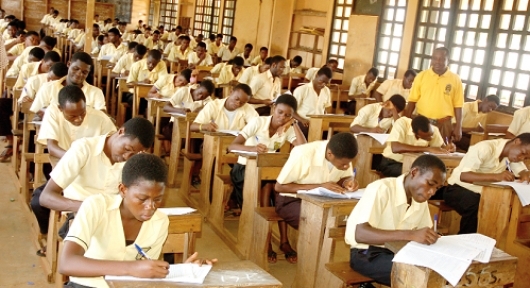Many Ghanaian students are still unable to complete secondary education in spite of efforts to make education accessible and progressive, the 2016 Global Education Monitoring (GEM) Report has said.
The first of a new series of post-2015 reports, says 53 per cent of students in Ghana are able to complete Junior High School (JHS) education, while only 39 per cent are able to complete Senior High School (SHS) education.
This, according to the report, titled “Education for People and Planet: Creating Sustainable Futures for All” meant that a significant portion of Ghanaian youth are not able to progress from secondary school to the tertiary level.
The (GEM) Report is a new series of reports used by the United Nations Educational, Scientific and Cultural Organization (UNESCO) to monitor the state of education in the new framework of the Sustainable Development Goals (SDGs).
It examined the complex interrelationships and links between education and key development sectors and also highlighted education strategies, policies and programmes which were most effectively linked to the economic, social, environmental and political priorities of the new sustainable development agenda.
Launched at a ceremony at Winneba in the Central Region on Thursday, the report stated that education needed a major transformation to fulfill its purpose so as to propel progress towards the attainment of the Sustainable Development Goals (SDGs).
The Minister of Education, Professor Naana Jane Opoku-Agyemang, who launched the report, said a national action plan for the implementation of the 2030 agenda was already in place and implored stakeholders to make inputs to it.
She called for effective collaboration between education stakeholders and the ministry to ensure that the country achieved the SDGs on education.
Prof Opoku-Agyenabg said the government had put in place policies and programmes which included Inclusive Education Policy, Complimentary Basic Education Policy and the implementation of the Free Tertiary Teacher Performance and Management Programme to help improve the quality of education in the country.
She appealed to graduate and under graduate students at the universities to conduct research into challenges in the education sector such that their findings spoke to specific issues and provided recommendations to specific challenges.
Professor Yaw Ankomah, a former Director of the Institute for Education Planning and Administration (IEPA), University of Cape Coast (UCC), who read excerpts of the report, said for education to be transformative in support of the new sustainable development agenda, it required a more rigorous approach.
Prof Ankomah said though Ghana had made significant strides with 92 per cent primary school enrolment rate, 319,000 children between six and eleven years were still out of school.
According to the report, while youth literacy rate in the country was 86 per cent, 699,000 youth of which 59 per cent were women remained illiterate while 633,000 SHS youth, with a larger proportion of them being females and 121,000 JHS aged adolescent were respectively out of school.
It said female enrolment at both secondary and tertiary levels as well as the inclusion of gender equality issues in education curriculum was still low, with 63 per cent of female adults in Ghana being illiterate while only three per cent had tertiary education.
That notwithstanding, the report commended Ghana for showing strong commitment towards funding education with six per cent of its Gross Domestic Product (GDP).
Professor George Kankam, Dean of the Faculty of Education Studies at the University of Education, Winneba (UEW), who chaired the ceremony, said as much as societies in the World were undergoing deep transformations, education needed a new approach to meet the aspirations of the changing world.
–
Source: GNA


